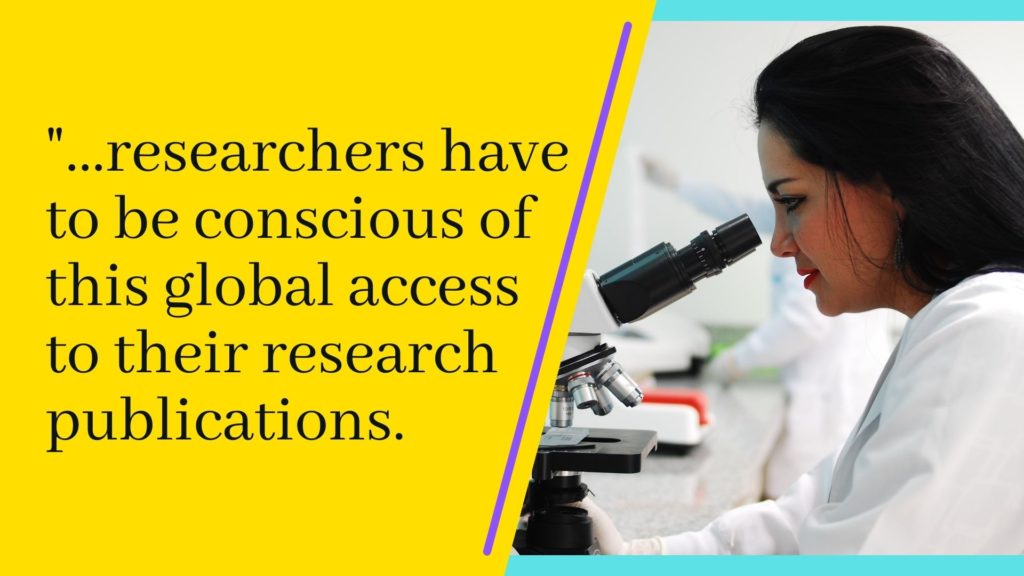
One major aspect of human endeavour globalisation has influenced is knowledge acquisition and dissemination. Knowledge dissemination through writing has changed in diverse ways. The tools for gathering knowledge, the sheer amount of knowledge accessible from previously remote cultures and untapped sources, and the means to disseminate them have all been impacted by internet-enabled globalisation. And global academia is the richer for it.
More and richer ideas about the cultures, politics, economies, sports and many other enterprises of various global peoples have been spread through writing for academic purposes. Academic sources remains one of the most respected when it comes to information use. Their activities and findings can be broadcast to audiences worldwide through the aid of tools such as online journals, blogs, and social media. This means researchers have to be conscious of this global access to their research publications.
Researchers must present their work in understandable, error-free writing using language in the best posible way. They must produce globalised writing for the purpose of full integration into mainstream global scholarship and research collaboration.

Preparing academic writing for a global audience
Writing, with the unprecedented ease of access to information, requires academics to take some steps to ensure their publications, no matter how short, present their work in the best light and is never misunderstood.
Whether you blog about your research area or you write strictly for academic journal publications, observe the following points to increase your research’s acceptability and avoid the embarrassment of being misunderstood or considered a poor researcher. Poor writing skills cast shadows on quality research so take care to edit until you have a “perfect” result to offer the world.
When preparing your thesis or presentation, follow your faculty’s preferred style guide. Choose clarity over impressive-sounding words, and proofread for mistakes after you finish writing. Also avoid:
- lengthy sentences;
- Slangs except where they form part of your interviews or subject of study;
- self-plagiarism;
- and localisation of English language. As much as possible, stick to standard UK or US English.
